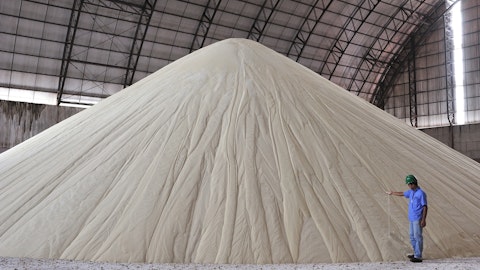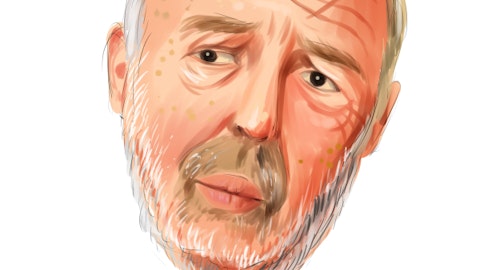Stuart Rose: One thing that would be important and we don’t know — so far the Biden administration held firm is no waivers. They have the ability to keep waivers wherever they feel like giving them and they happened in the administration, they have in the past and Biden, it’s been pretty good, very little or no waivers. So, if there’s no waiver, so it’s actually a decent increase.
Zafar Rizvi: Yes. And hopefully, this export continue to increase as I said, this year we can see that we are way ahead compared to last year and if export continues to increase, that will also help us.
Jordan Levy: Got it. That’s helpful. Lastly, jumping around a bit here, but just to go back to CCS. Zafar, maybe can you go over it in your prepared remarks, but just so we have separated out, can you just talk to kind of the next steps as we move into early next year? I know, you mentioned that you’ve — most of the long, long-term items, you’ve been working on and the detailed plans but maybe just break out what we should be looking for as you move into 1Q, 2Q?
Zafar Rizvi: Yes, Jordan. As I have mentioned year on there was a lot of still work to do, because there is a lot of government agencies’ permits we are still in process applying. Those permits doesn’t take that long compared to Class 6 permit that would take from six months to 18 months, but other permits, which is required by Illinois, required by the federal government and other things. So we are working on those progress, and then we are — we cannot start injection well start even digging the injection well up that time we received EPA permit. So we are in the process of looking at to starting the bid already to be prepared for as soon as we receive a permit from EPA. We should be prepared to start injection well. So there’s going to be a lot of work will be happening next year, but our goal is hopefully.
But certainly, as Doug said forward-looking statement that we complete this project by the end of 2024. But this could take longer, but that’s what we are trying to achieve.
Jordan Levy: And just because you filed for three permits, I would assume that you’re thinking about some third-party volumes there too.
Zafar Rizvi: I think at this stage, probably that’s what we’re thinking because we do not have enough capacity for our ethanol facility, but we know there is a lot of demand for the well going to be in — for in the future. And so we just wanted to make sure, is they’re going to be too extra well. we’ll be available. We don’t have to start digging them right away as we — there will be started as needed basis but we will have already a permit for the EPA to achieve though. So that if we wanted to start it, we can start it anytime.
Jordan Levy: Got it. Thanks, guys.
Stuart Rose: Thank you, Jordan.
Operator: Our next question comes from Chris Sakai with Singular Research. Please proceed.
Christopher Sakai: Yes. Hi, good morning.
Stuart Rose: Good morning.
Christopher Sakai: Can you talk more about our — it’s REX experiencing any logistical challenges with rail?
Stuart Rose: I think the main concern, which we have is, as you can see the recently going on that there is a strike and you can hear it from the strike and all around that during that 2019, 2021 and railroad laid off a lot of people and certainly these drivers and all those things demand increase, but there is not enough manpower. We see sometimes that power is already there– are the power made it to the plants to pull but there is no driver and they’re supposed to pull it on fair Monday, they’re not, they’re up to Saturday, Sunday, as these things delayed further to pick up those railcars. Are there other containers that are not available sometimes and that delays car our– there is limited storage, although we have increased a lot of our storage compared to other ethanol facilities, but there is a per point reach, which you have your tanks are completely full, then you have to slow down the project are storages are full you can’t really overflow the ethanol from the tanks and then you have to slow down and wait for that to the railcars to come back before you loaded again.
So that certainly caused the problem production that certainly is the caused the problem of shipment and unfortunately that’s the consistent continue problem at this stage.





